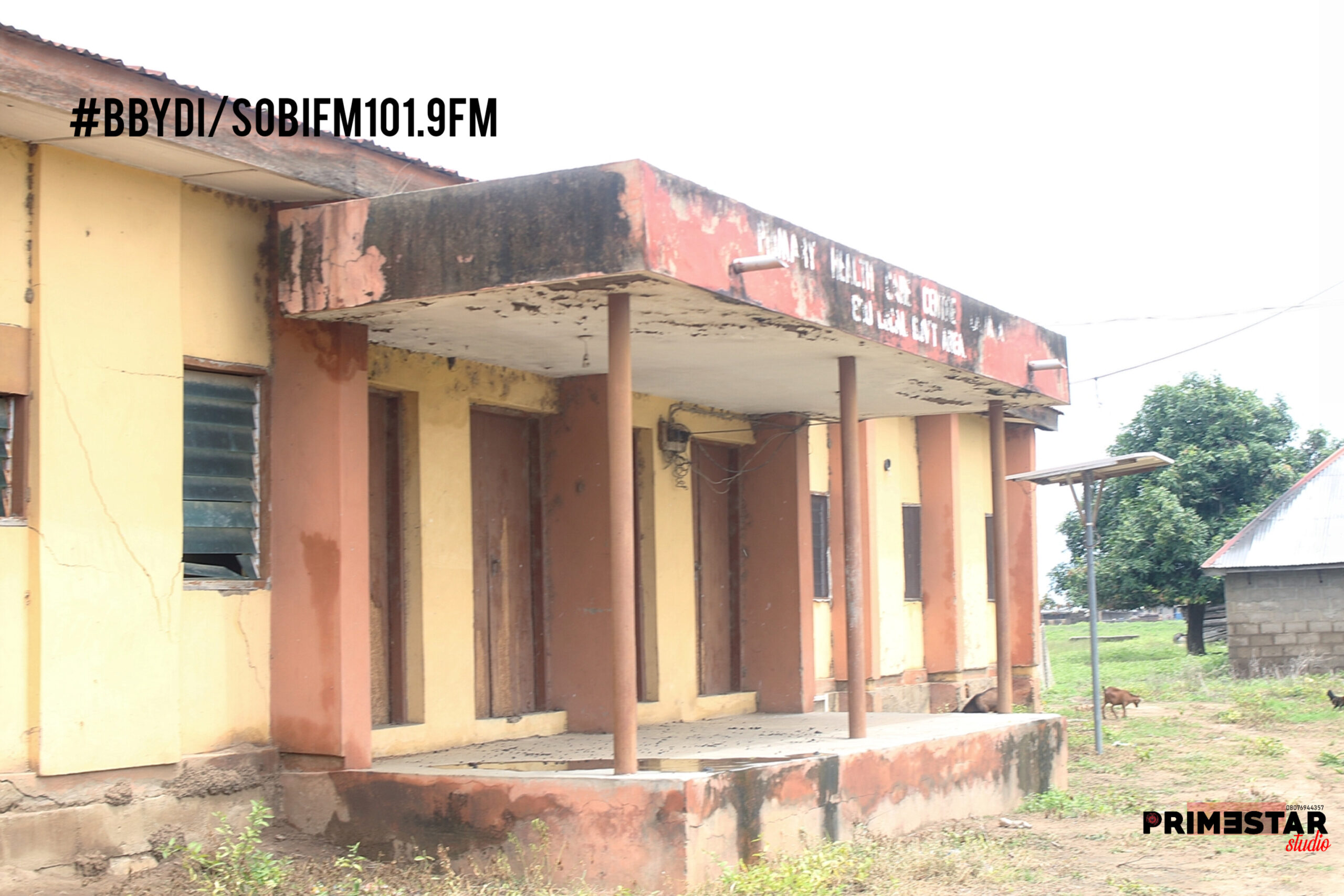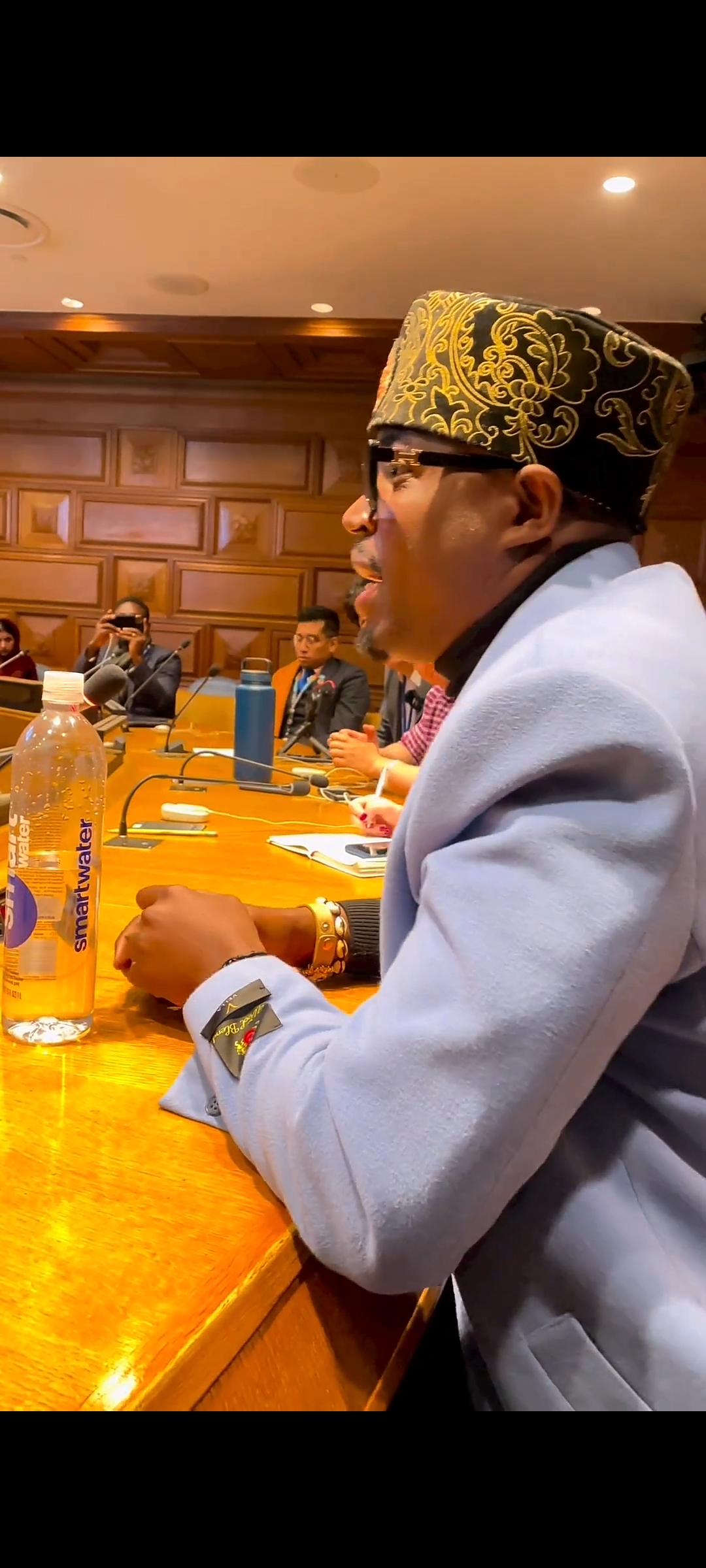In the rural community of Likpata, located in Edu local government area of Kwara state North Central Nigeria, a massive healthcare center lies in ruins, a symbol of government negligence and failing infrastructure.
The Likpata Primary Healthcare Center, which was built over three decades ago, was intended to provide essential healthcare services, serving as a beacon of hope for the residents.
However, years of neglect, lack of maintenance, and poor funding have left the center in a state of disrepair.
The healthcare center, which was built in 1992 by former Governor Shaaba Lafiagi, to cater to the healthcare needs of over 10,000 residents in the community and surrounding areas, now stands as an eyesore.
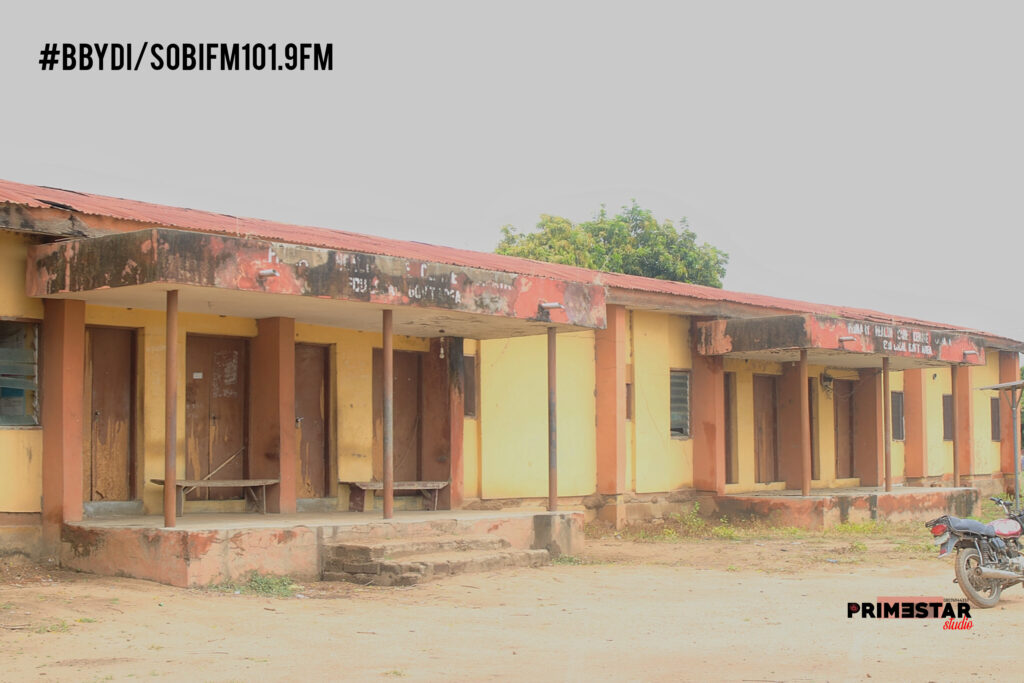
The roof is leaking, the walls are cracked, and the equipment is outdated and unusable.
The once thriving center was last operative in 2013 and has been reduced to a shadow of its former self, with no medical personnel, drugs, or supplies to provide basic healthcare services to the community.
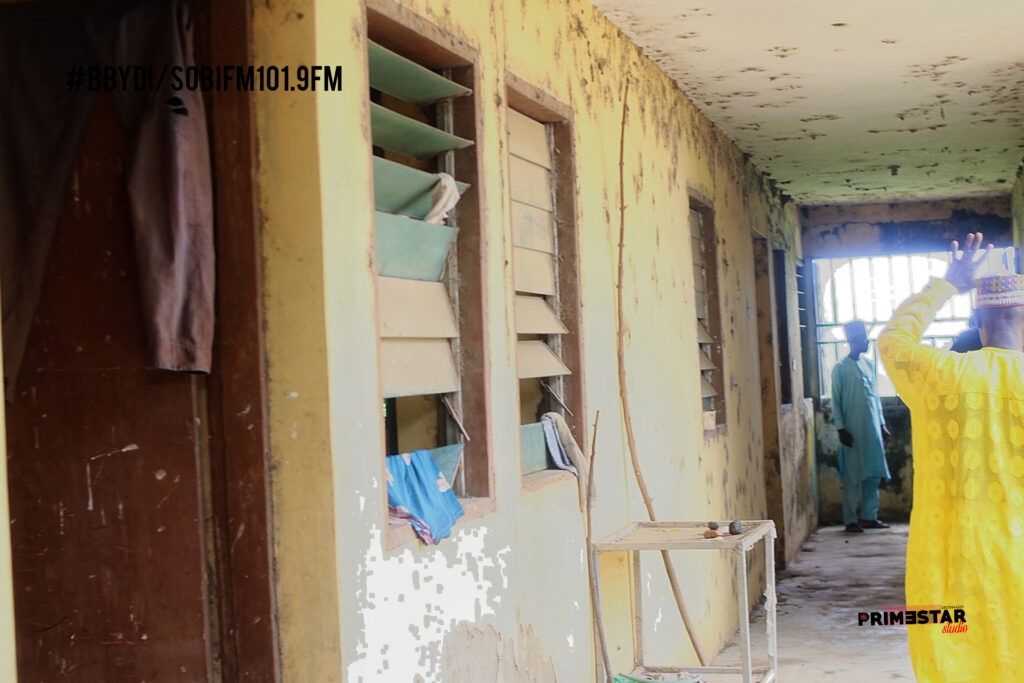
The situation in Likpata is a clear indication of the failure of the government to meet the SDG goals on access to healthcare.
The United Nations’ Sustainable Development Goals (SDGs) aim to ensure universal access to quality healthcare services by 2030, with a particular emphasis on maternal and child health, infectious diseases, and non-communicable diseases.
However, the neglect of the primary healthcare center in Likpata is a clear indication that the government is not doing enough to achieve these goals.
The residents of Likpata have expressed their frustration and disappointment at the state of the healthcare center.
According to Hajia Fatima Kudu, a resident of Likpata, “We have been left to our fate, with no medical facility to cater to our healthcare needs.
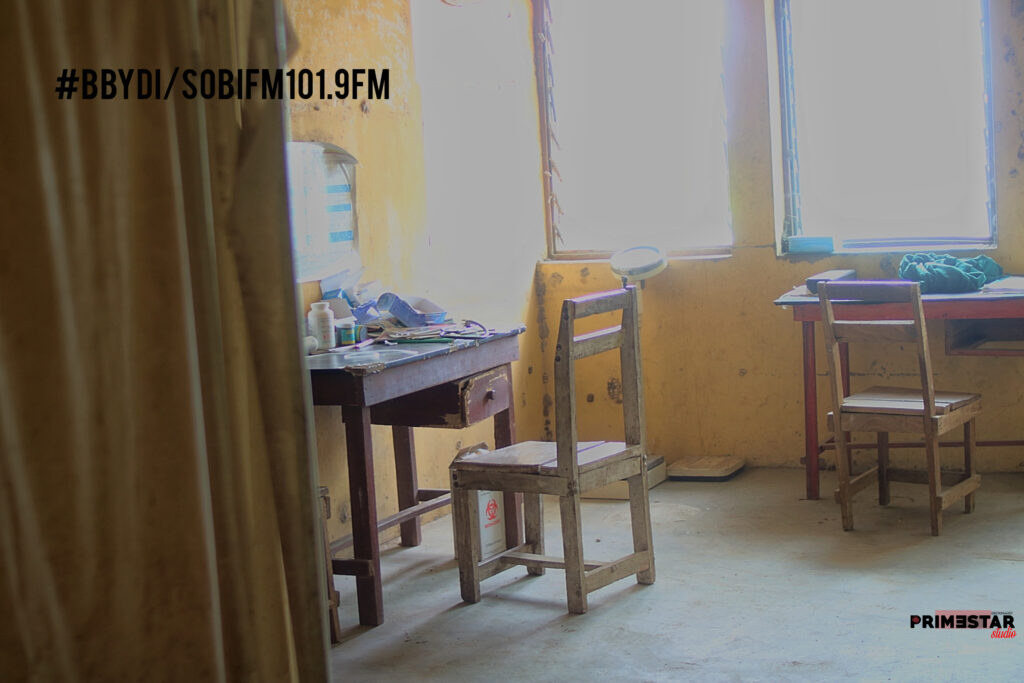
“The people, especially pregnant women have to travel long distances to the nearest hospital which is in Lafiagi to access basic medical care, which is expensive and often beyond our means.
“We are calling on the government to come to our aid and provide us with a functional healthcare center that can cater to our needs,” she said.
Likewise, Mr. Mohammed Kawu-Likpata, a youth leader in the community, lamented the loss of potential opportunities in the community due to the state of the healthcare center.
“The healthcare center was supposed to be a hub for healthcare services, and we were hoping that it would attract medical personnel and create employment opportunities for our youth.
“However, due to the state of the center, it has become an abandoned structure, and our youth are left jobless and without any prospects for the future,” he said.
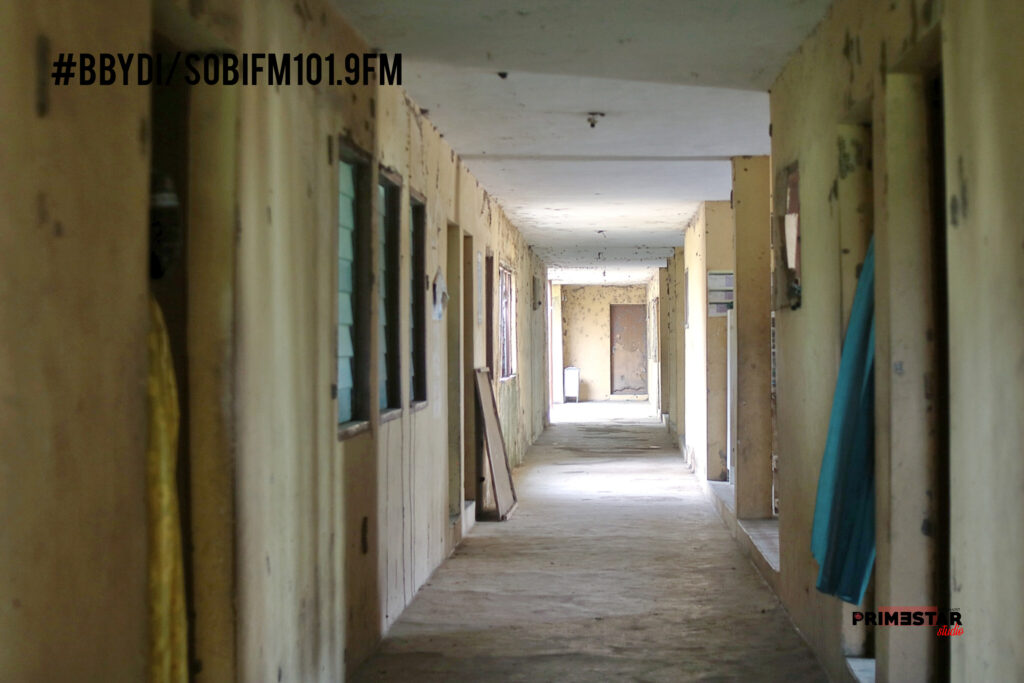
Another issue is that Nigerians are faced with financial hurdles in paying for services rendered in health care centers.
Not a few Nigerians have groaned and suffered harrowing experiences in their quest to access public health care, because of the huge financial barrier placed on their way; this factor is evident because money plays a significant role in healthcare delivery in this part of the world.
The village head of Likpata Alhaji Jubrin Mohammed, said many lives have been lost due to the distance of the nearest public health center and money for treatment.
“This alone always discourages many villagers from going to the health centers because of their financial capacity. Payment will be required before treatment or attending to the patients,” he said.
As a result of this, most poor villagers have resorted to patronizing traditional herbal medicine which they consider cheap and accessible, notwithstanding the fact that public health care should be within the reach of the poor.
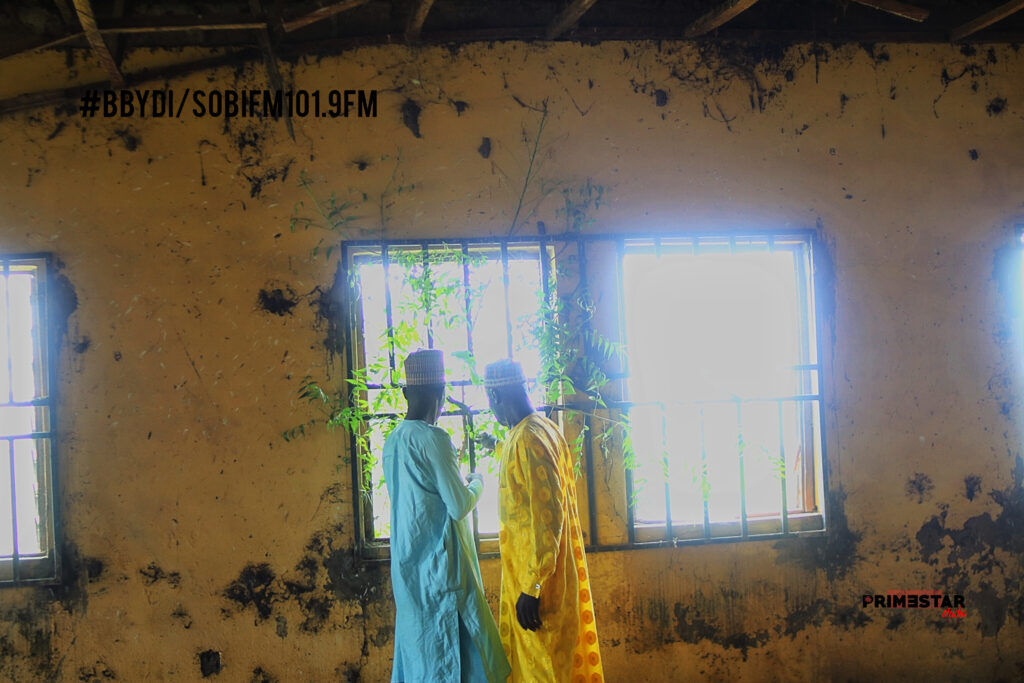
The situation in Likpata is not unique, as many rural communities in Nigeria lack access to basic healthcare services, and the government has failed to provide the necessary infrastructure and funding to address this issue.
According to a report by the World Health Organization (WHO), Nigeria has one of the worst health systems in the world, with only 3.9% of the country’s GDP being spent on healthcare.
This is well below the recommended benchmark of 15 percent set by the WHO.
Poverty and Challenges of Access to Public Health System in Nigeria
In 2001, Nigeria hosted the Heads of State of the African Union member states and made the “Abuja Declaration” urging leaders to commit at least 15 percent of their annual budgets to improve their health sector.
Twenty -Two years after the declaration, Nigeria has not attained the pledged funding benchmark, as annual budgets revealed that the Federal Government has never voted more than six percent to the health sector.
Most of our public health care centers make money a priority before attending to patients, no matter the exigency of the situation, the patient has no choice but to cough out some money, this is without recourse to the financial status of the patient.
This alone is one of the factors that dissuade patients especially the disadvantaged, from accessing public health care, which they see as ‘out of reach’ to them, fueled by the policy of ‘payment before service’ before attending to patient’s demand.
The National Health Insurance Scheme (NHIS) introduced by former President Olusegun Obasanjo, was meant to bring succour, but its limitation to the civil servants who are on the government payroll and some few private organization’s buy-ins, remain the bane of the scheme.
Though a bit of a relief, such an initiative would have gone a step further by accommodating all Nigerians irrespective of their status, belonging to the civil service should not be the barrier that will stop them from enjoying subsidised public health care services.
The poor are today faced with challenges of accessing the public health system because of the obvious lack of subsidy for them; the government appeared not to have prioritized such needs, because the poor are always and still remain at the receiving end.
It behooves the government at all levels to provide access to a healthcare facility, this is important so as to enable the poor and the disadvantaged to have access to healthcare delivery, as other citizens enjoy such a gesture from their government globally.
Access to the public health system is fundamental to how a country is viewed as developed or underdeveloped; this generally plays a significant role in adjudging the health system of a country.
The government has a responsibility to provide basic healthcare services to its citizens, and the neglect of the healthcare center in Likpata is a clear indication of the government’s failure to meet this responsibility.
The government must prioritize healthcare investment and ensure that healthcare services are accessible to all citizens, regardless of their location or economic status.
By Dare Akogun
This story is produced with support from Brain Builders Development Youth Initiative (a climate-focused non-profit in Nigeria) and Sobi 101.9 FM Ilorin, Kwara State, North Central Nigeria.


